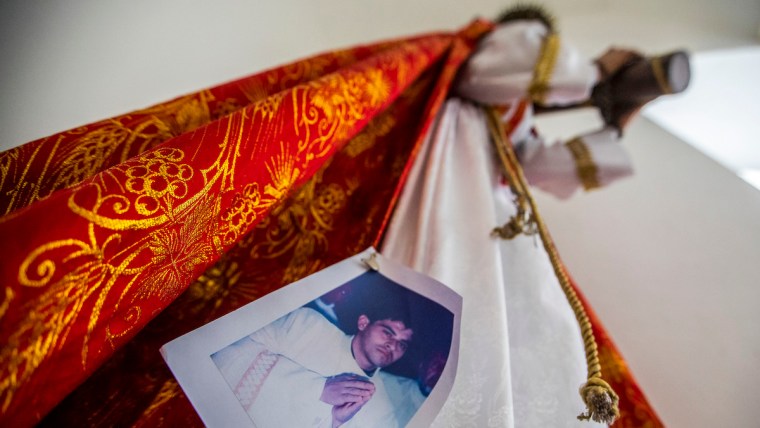In August 2022, Nicaragua’s telecommunications regulator ordered the suspension of at least 17 media outlets, including radio stations and local television channels, according to a list shared with CPJ by the journalists’ union Periodistas y Comunicadores de Nicaragua (PCIN).
The list of suspended news outlets that PCIN shared with CPJ includes TV stations Canal San José, NGTV, and Canal RB3, as well as radio broadcasters Radio Darío, Radio Sky, Radio La Guarachera, Radio Vos, Radio San Carlos, Radio Hermanos, Radio Nuestra Señora de Lourdes, Radio Nuestra Señora de Fátima, Radio Allens, Radio Monte Carmelo, Radio San José, Radio Stereo Santa Lucía, Radio Stereo Sol, and Radio Stereo Fe. Other suspended news outlets asked not to be publicly named, according to Cristopher Mendoza, a representative of PCIN, who spoke with CPJ via phone.
At least 12 of the suspended radio stations were owned and managed by the Catholic church in the northern region of the country, Mendoza said.
On August 1, the regulator, the Instituto Nicaragüense de Telecomunicaciones y Correos (Telcor) suspended seven radio stations under the direction of Bishop Rolando Álvarez, the head of the Matagalpa diocese, according to Mendoza and a report by Reuters.
Álvarez was placed under house arrest after a raid on his home on August 19, according to CNN and a statement from the Nicaraguan police, which Nicaraguan news website Confidencial published on its site and posted on Twitter. The bishop is facing a criminal investigation for “destabilizing and provocative activities,” according to the police statement.
In announcing the closure of the seven radio stations on August 2, Telcor said the stations “did not meet the technical requirements to be on the air,” but it did not specify the requirements, according to Reuters.
In addition to providing religious programming, these radio stations served rural communities with local and national news, according to Mendoza. “For these communities, this was the only contact they had with what was happening at a national level,” he said.
On August 12, Telcor ordered the suspension of operations of Radio Darío, an independent news and opinion radio station in the northwest city of León, according to station owner Anibal Toruño, who spoke with CPJ over the phone, and a public statement by Telcor that Toruño shared on his Twitter account.
Toruño told CPJ that Telcor argued that official records contained incorrect information about the radio station, including the station’s address, the make and model of the transmitter, and the radio frequency. Toruño said that the address and transmitter had changed after the radio station’s headquarters were burned down in 2018, and staff had to move to another building and buy new equipment, as CPJ has documented.
“We notified the authorities about all of this. This is simply an excuse to silence us,” Toruño told CPJ.
On August 15, two other stations owned by Toruño, Radio Sky and La Guarachera, which broadcast music, also had their licenses revoked, according to news reports and Toruño.
CPJ sent an email to Telcor requesting comment, but did not receive any response.
CPJ has documented the Nicaraguan government’s ongoing crackdown against the press since a wave of protests in spring 2018, including imprisonments, criminal proceedings, raids on news outlets, criminal defamation charges, and physical attacks. At least one journalist was killed while covering protests in April 2018.
